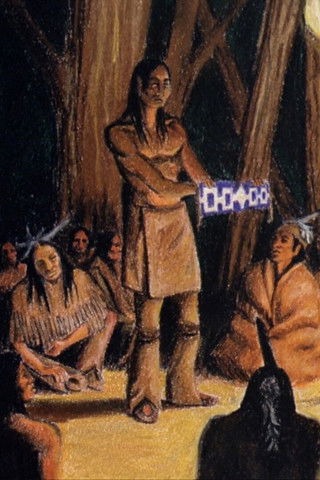Who Were the Ones?
Genres
DocumentaryAnimationMusic
OverView
This short film was created by a group of Indigenous filmmakers at the NFB in 1972 and is essentially a song by Willie Dunn sung by Bob Charlie and illustrated by John Fadden: "Who were the ones who bid you welcome and took you by the hand, inviting you here by our campfires, as brothers we might stand?" The song expresses bitter memories of the past, of trust repaid by treachery, and of friendship debased by exploitation upon the arrival of European colonists.
Others
Budget
$--
Revenue
$--
Status
Released
Original Language
English
Runtime
7 mins
Rating
0/10
Release Date
01 January 1972
Country
Canada
